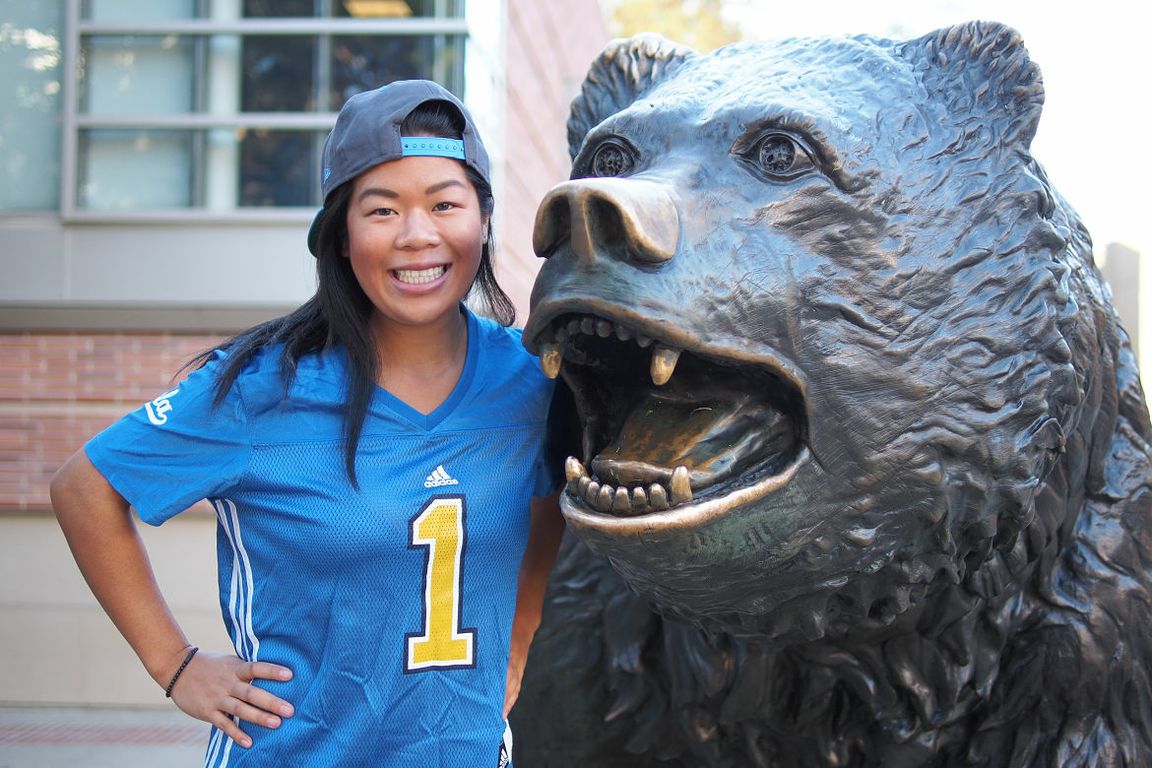This Bruin is a tireless advocate for all UC staff

By day, Lucy Tseng raises funds to support UCLA students in her job as regional director for the giving team responsible for the territory stretching east from the San Gabriel Valley to the Coachella Valley. But outside of her 9-to-5, the Alhambra native dedicates much of her time to advocating for staff issues at UCLA and across the wider University of California system. Tseng was recently appointed by University of California President Janet Napolitano as incoming staff advisor to the regents.
“In five short years with UCLA, Lucy has jumped at every opportunity to learn, to engage and to serve,” said Napolitano, whose term ended July 31. “With her generous and optimistic spirit, I am confident that Lucy will be a tireless advocate for UC staff."
Last month, Tseng began her two-year commitment as one of two staff appointees who attend all regents’ meetings to provide a voice that speaks on behalf of all UC staff. While this role has grown steadily throughout its 15-year existence, Tseng said there’s room for even more growth.
“Affordable housing and basic needs for staff are important to me because not having these things are additional and preventable stressors that can greatly impact a staff member’s focus and contribution to their work,” Tseng said. “If we make the playing field a little more even, then we can actually measure performance management and career development on a realistic scale.”
Tseng points out that of the three constituency groups — students, staff and faculty — only students have formal voting rights with the regents.
“Of the other two, faculty have access to at least some closed sessions,” she said. “For now, staff are only invited to open sessions. There’s still work to do.”
It’s the kind of work Tseng does well. For the last three years, Tseng, who graduated from UCLA in 2012, has volunteered as a board member for UCLA Staff Assembly — a staff-run volunteer organization. She served as president during the last academic year and served on the systemwide Council of UC Staff Assemblies for the past two years.
“My focus has been on systemwide access to basic needs. That means access to things like nutritious foods, affordable housing and flexible work arrangements.” Tseng said, “Parental and paid family leave and employee contributions to the retirement fund were a couple of the major topics for discussion before COVID.”
Tseng said it’s important to consider the unique obstacles to meeting the basic needs of employees at each campus within the UC. “You can’t compare Los Angeles to Merced,” she said. “The housing markets are different, for example. Access to nutritious foods could be completely different in a place that’s heavily trafficked like Los Angeles, whereas a place like Merced or Davis might not have as much access to those things. Each campus has its own challenges.”
Since many staff members began working from home to combat the spread of the coronavirus pandemic in March, Tseng said physical and mental health among staff have been her foremost concerns. To that end, the staff advisers are partnering with the Council of UC Staff Assemblies to tackle new challenges that staff members face as they shift to work-from-home environments.
Since March, UCLA has been forced to jump headfirst into large-scale experimentation with flexible and remote work arrangements for staff. Tseng said, while some roles require physical presence on campus, the past several months have made it clear that not all staff members are required to be on campus every day from 9 to 5. Many have worked even more efficiently and effectively within the remote work environment.
“Instead of thinking about making housing affordable for staff, it’s more about making work available to staff where housing is affordable. That goes in line with flexible work arrangements,” Tseng said. “People can choose to live 30 miles or more away from campus — and instead of spending hours in traffic each day, they may only be required to drive to campus two or three times a week.”
Another way the UC can make itself a desirable destination for California workers? Tseng, who has two dogs, suggested “PAWrental” leave — paid leave for employees who have newly adopted pets — is one perk the UC can offer to attract employees who don’t have children. The state considers pets to be property and not family, but Tseng said that traditional benefits like pension plans and sick and vacation time are not as appealing to the newer generation.
...tinyurlis.gdu.nuclck.ruulvis.netshrtco.de
